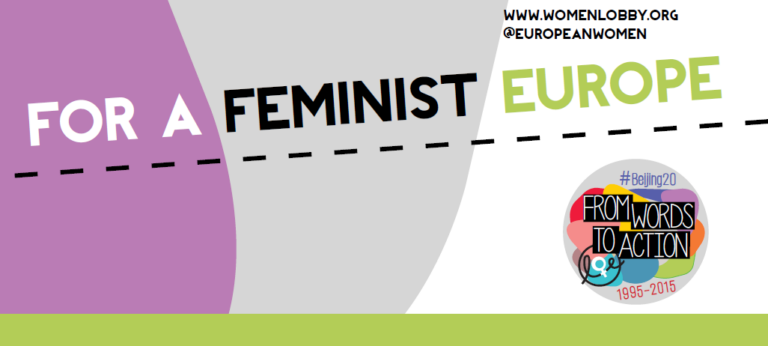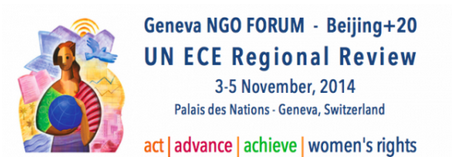[WeNews, 04 November 2011] Women’s rights have long been considered a development keystone. Tunisian women – in the vanguard of the Arab world – will put that theory to a crucial test as the country’s new democracy takes shape following last week’s elections.
With its recent elections, Tunisia has passed its first hurdle in the long transition to democracy.
While the world will watch closely as a constitution is created and a government formed, there is one important gender-specific bellwether that bears special attention: The ability of educated women to help forge a stable, advanced democracy that preserves and promotes their civil rights.
In Tunisia, where the Arab Spring began, the status of women is by numerous measures the highest in the Arab World.
Here is a real-time chance to observe whether educated women with small families, employable skills and time for careers can contribute significantly to a stable, largely secular political order able to restrain a potential conservative backlash against them.
Around the Arab world, women worry about where the revolutions are leading society, perhaps most publicly in Egypt, where many gains for women made under Hosni Mubarak and his wife, Suzanne, are now threatened because of their origins in that hated regime.
But Tunisia is now in the spotlight too.
On Wednesday, about 200 Tunisian women demonstrated in downtown Tunis in defense of their rights, fearing a threat from last week’s victory by the Islamist Ennahda party.
Tunisia has 10.6 million people, according to the United Nations Population Division, the New York-based keeper of global census statistics. That number is split evenly between male and female citizens, with no evidence of the widespread “son preference” that leads to the abortion of female fetuses and the neglect of little girls in parts of Asia and elsewhere. That’s a good start for Tunisian women.
Better Quality of Life
In 2008 (the latest available U.N. figures) the maternal mortality rate in Tunisia — the deaths of adolescent girls and adult women in any stage of pregnancy and immediately after giving birth — was 60 in 100,000 live births. In Arab nations generally, the rate was 247 in 100,000. Ninety-five percent of Tunisian births are attended by skilled health personnel. The Arab world’s average is 72 percent.
Virtually all Tunisian girls go to primary school; 76 percent are enrolled in secondary education. Female teens and young women in the 15-to-24 age range enjoy literacy rates that are roughly on a par with their male counterparts. Ninety-eight percent of men can read and write, and 96 percent of women can as well, roughly 10 percentage points ahead of women in a region that stretches across North Africa and the Middle East.
By some measures, Tunisia ranks among developed nations. Its total fertility rate, statistically at 1.9 children per women, is lower than that of the United States, at 2.1 percent, and nearly in line with the average of 1.7 children in the richer countries, including Europe. (The United States is the exception to the rule, with its higher rate. A fertility rate of 2.1 children over a woman’s reproductive years is known by demographers as replacement fertility, meaning that the two parents will replace themselves while keeping population growth stable.)
Modern Amenities, Longer Life
A majority of Tunisian women are urbanites, living in homes with modern sanitation and household conveniences. In old age, a Tunisian woman can expect, statistically, to live to 77, five years longer than the world average and 21 years longer than her counterpart in Sub-Saharan Africa.
Only 3 percent of Tunisians are thought to be living on less than $1.25 a day, compared with 53 percent in Sub-Saharan Africa.
Why do all these measures of a woman’s life matter? For decades people looking for clues to why some countries develop faster than others have pointed to the status of women and their involvement in national life, including in economic development and politics.
Educated women, it has been said again and again, will have fewer children to strain family resources and more time, energy and training to play productive roles.
The belief that women are key to development, and the demand that their rights be foremost in matters of reproductive health, were the main messages of the 1994 International Conference on Population and Development. That watershed meeting was held in Cairo, at the center of the Arab world.
Mahnaz Afkhami, founder and president of the Women’s Learning Partnership in Bethesda, Md., which brings together women from many Islamic societies, knows how tenuous women’s rights can be and how fragile gains in status too often are.
Afkhami, a minister of women’s affairs before the Islamic revolution in Iran, saw a generation of advances rolled back in a short time. She testified this week about the role and potential of women in the Arab spring before a Senate Foreign Affairs subcommittee on democracy, human rights and women’s issues.
“Egypt and Tunisia are prime examples of countries where progress towards women’s equality may be undone without America’s firm and increased commitment,” Afkhami told the senators. “Before the Arab Spring, Tunisia stood out in the region for its more equitable family laws, along with Morocco, and Tunisia’s historic election last week was heralded as a model of transparency.”
That election resulted in a majority vote for Ennahda, which has been described as a moderate Islamic party that has pledged to uphold women’s rights, Afkhami said. But, she added, “Women’s rights and democracy activists are seriously concerned that the party will act differently once in power.”
In Egypt, Hoda Rashad, director of the Social Research Center at the American University in Cairo, spoke for her fellow Egyptian women in an interview earlier this year when she catalogued gains made in recent decades in such areas as education and family planning.
But she was also cautious about a threat of reversals for women in the tumultuous revolution around her. “We aren’t there yet,” she said.


